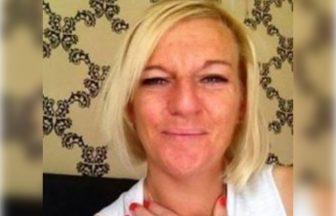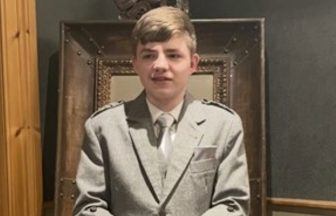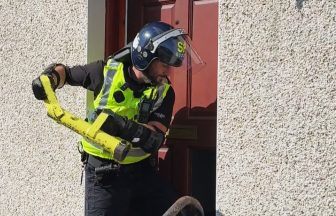The family of a little girl diagnosed with cancer as a three week old baby have welcomed over £2m in funding for infant cancer research.
Cancer Research UK has awarded £2,014,419 for the study into what causes cancer in babies before they are even born.
Led by Professor Katrin Ottersbach of the University of Edinburgh, they aim to find factors driving leukaemia while babies are still in the womb or in the early weeks after birth.
Amelia Paton was diagnosed with two types of leukaemia – acute lymphoblastic leukaemia and acute myeloid leukaemia – in December 2017 and spent her first Christmas in hospital.
After two stem cell bone marrow transplants, Amelia is now cancer free and has just finished primary one.
Mum Kerri Paton of Turriff, Aberdeenshire said she is “so proud” of her little girl.
She said: “To be told our baby had two types of cancer was just devastating. To have to go through so much at such a young age seems so unfair.
“But Amelia has been a little fighter from the day she was born and we are so proud of her and everything she has achieved.
“If this research can help other children like Amelia to tackle this horrible disease, then that would be fantastic.”

Leukaemia is a type of cancer which affects blood cells, causing them to be produced incorrectly or in too great or too few numbers. In infants it is most commonly caused by a chromosomal rearrangement in a gene called MLL (mixed-lineage leukaemia).
Professor Ottersbach’s team hopes to discover how the liver and bone marrow foetal and neonatal microenvironments in infants are manipulated by cancerous cells to help the disease develop, as the liver and bone marrow are key in the production of blood cells.
The research team hopes its findings will be able to establish new treatments which could stop the disease in its tracks.
Professor Katrin Ottersbach, of the University of Edinburgh, said: “We know that the causes of leukaemia in young infants are present before these children are born.
“By studying in detail the systems which create blood in the body, we hope we can establish what is driving this disease within these very young children.
“If we pinpoint these drivers, we may able to target these and find new or existing therapies which stop the cancer developing.”
Leukaemia is the most common cancer in children and is particularly difficult to treat in infant patients under the age of one.
Each year around 280 children aged under four-years-old are diagnosed with leukaemia in the United Kingdom.
With around 20 children in the UK under four sadly losing their lives to the disease annually, finding new ways to tackle the disease is vital.
Dr Catherine Elliott, Director of Research at Cancer Research UK, said: “Leukaemia affecting babies in the very early days of life, or while still in the womb, is devastating for families.
“This research offers valuable insights into what happens inside very young infants to trigger the disease and will hopefully set us on the path to new treatments which will offer hope to families now and in the future.”
Follow STV News on WhatsApp
Scan the QR code on your mobile device for all the latest news from around the country






















